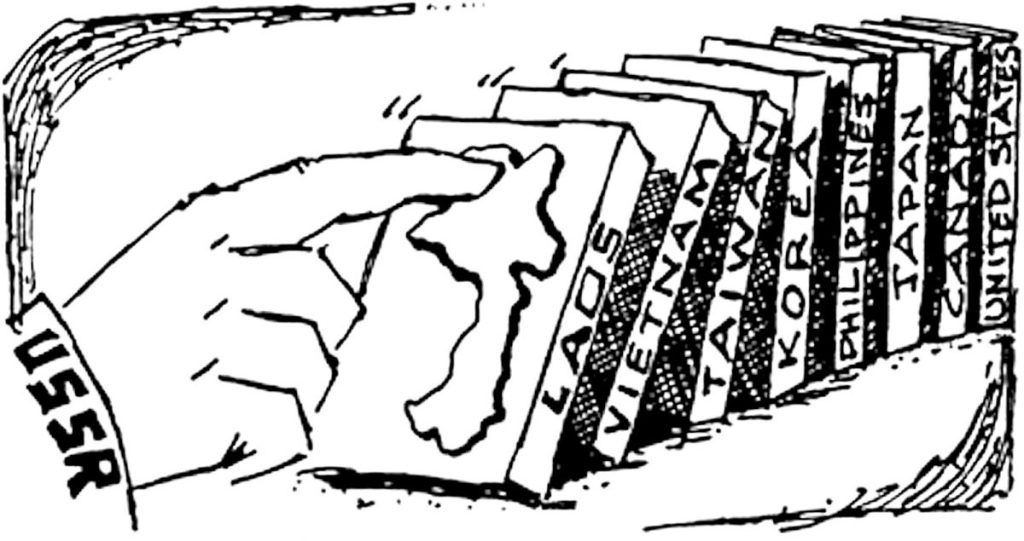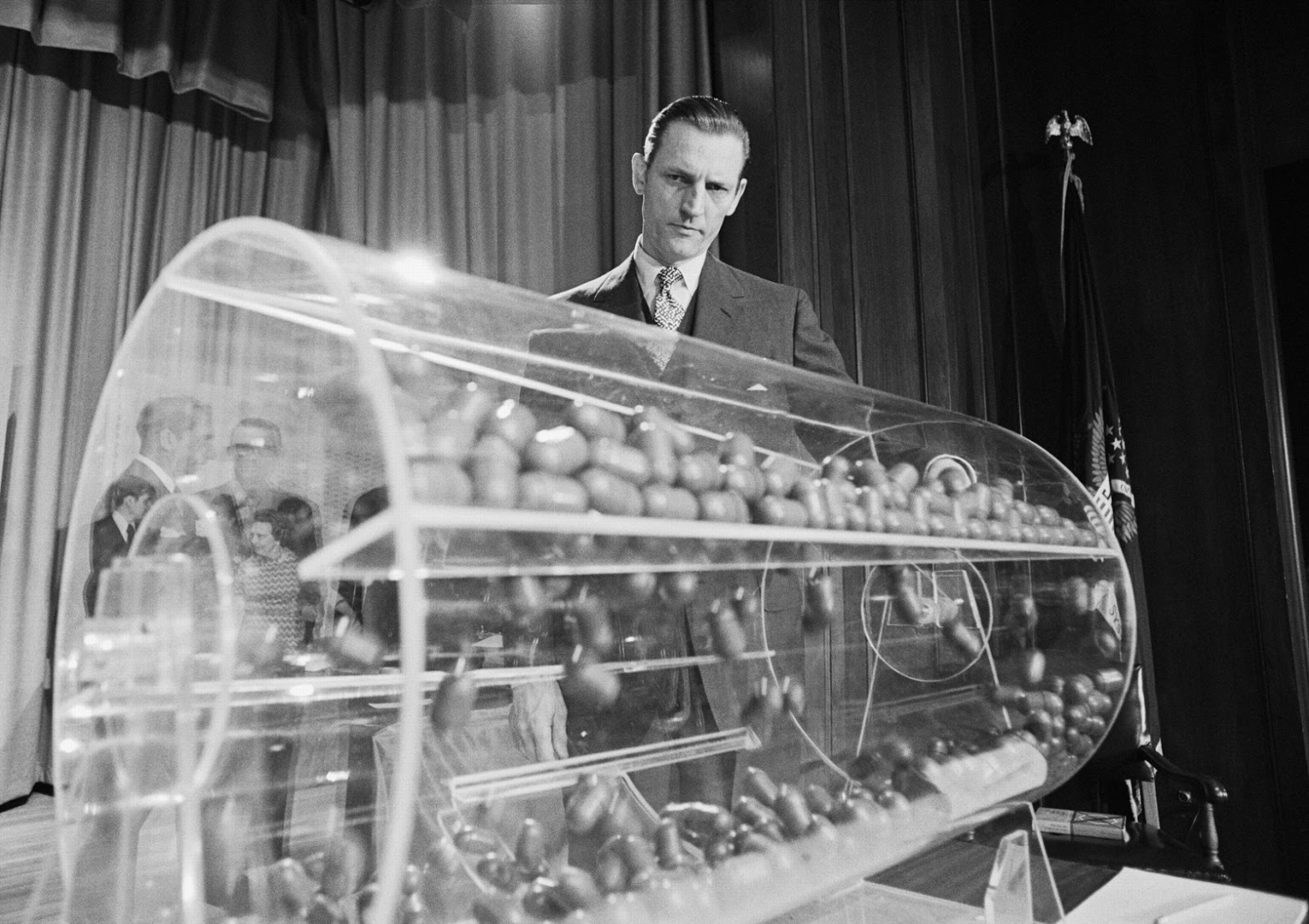When I graduated from high school in 1962 and began my first full-time job as a tool and die apprenticeship there was no draft for the armed services. It was a strictly volunteer army. US soldiers were present in Vietnam for several years but ostensibly only as advisors. The Green Berets were advising the South Vietnamese army in their fight against the North Vietnamese communists. However, as the war escalated, and the US took a broader role a military conscription was implemented. Although not everyone was eligible for the draft.
There were numerous exemptions. Certain medical conditions or religious affiliations precluded being drafted. Other exceptions were an upper age limit and marital status. If you were twenty-six years or older you would not be eligible or if you were married or married with a child, you would be ineligible. If you were a full or part-time college student or employed in certain professions in critical industries, you would also be exempt from military service. These exemptions were known as deferments from military service.
One of the critical occupations during that period was a tool and diemaker including a tool and diemaker apprentice. A deferment was automatically issued if you were employed in one of these positions. Out of high school, I was automatically issued a deferment through my employer, Heller Machine and Tool. And since I was also a part-time college student that also qualified me for a deferment. Since I had an occupational deferment, I didn’t give much thought to entering the armed services. I wasn’t against it I just didn’t think too much about it.

All of these rules changed rapidly as the war escalated. But, as chance would have it, I was just ahead of the curve and for five years was automatically issued a deferment every year. First, because of my apprenticeship in a critical occupation and when that was eliminated because I was married. When that was eliminated, a deferment was issued because I was then a full-time student. When that was eliminated, I continued to receive a deferment because I was married with a child on the way. When that was eliminated a lottery was established and the landscape changed drastically.
The lottery was established supposedly to improve the fairness of the system. This was a ruse. The lottery ensured an ample supply of cannon fodder because the war had been drastically escalated under Lyndon B. Johnson’s presidency and when Richard M. Nixon was elected the United States had a major and growing presence in Vietnam and American casualties were numbering in the thousands each week. The rules had been constantly amended as the troop deployments escalated and number of casualties and deaths increased. Eventually, no one was exempt except those with serious medical issues, conscientious objectors, and those over twenty-six years old.
The lottery system was based on a person’s birthdate. The dates were selected on a random basis and you were either in a high, medium, or low probability to be drafted. My birthday, June 19, fell in the of high probability category. I was 25 ½ years old, less than six months from the upper age limit of twenty-six, married, Joann was pregnant with Jill, and I was a full-time engineering student. But suddenly the rules changed and my number was up.
Shortly after the system was initiated, I was drafted. I received my draft notice in the mail. It stated President Richard M. Nixon orders you to report for active duty at Fort Dix military base in two weeks. I immediately petitioned the local draft board for an exemption based on the fact I was married, soon to be the father of a child, less than six months from the age exemption and a full time student approximately one year from graduation. I was granted a hearing with draft board on a Tuesday evening two days before my date to report for active duty at Fort Dix.

Prior to the hearing, I summarized my situation in writing. When I was called into the hearing, I reiterated my experience with ever evolving rules over the previous five years and finally made my plea. I told them I was twenty-five and a half years old, six months from the upper age limit, had a certification as a tool and diemaker journeyman, was a year from graduation with my bachelor’s degree in chemical engineering, was married and with a child soon to be born. I then asked for an exemption to finish out the academic year. I also brought my Journeyman’s certificate, my current college transcript, and my notice to appear for active duty. And I further stated I would agree that night to sign up for four years in whichever branch of the armed service they stipulated at the conclusion of my exemption.
There were six people on the board to hear my case. Five of the six appeared to be pillars of the community, businessmen and politicians in business suits. The sixth was an Army Captain in uniform. They were all seated along a long table and I stood at the head of the table to make my case. After I described my situation, the Army officer spoke up and said, “Okay, you made your point. Please leave the room and we’ll call you back when we’ve made our decision.” I sat outside the room for perhaps fifteen or twenty minutes while they deliberated. It felt like a week.
Finally, I was invited back into the chamber and again stood at the head of the table. The military officer addressed me and gave me the news, their verdict as it were. He said, “The board has decided to extend your deferment for six months. At that time when you will have passed your twenty sixth birthday and under our current rules will no longer be eligible for military service.”
He then added an afterthought, “We really aren’t looking for someone like you in the military, especially at your age. We need young soldiers that can follow orders. You, on the other hand, clearly won’t fit that pattern. You came in here tonight fully prepared, armed with ample documentation, and made a solid case. You spoke like a Philadelphia lawyer and if I had you under my command, I’d be worried you would take an entire company AWOL. OK, that’s our decision. Now, I’ll ask you to wait outside for the next hour or so until were finished with our business here. I want to discuss your statement regarding enlisting following the expiration of your deferment.”
Naturally, I agreed but had no idea what he had in mind. I was thinking of the Navy. Once the board disbanded for the evening the Captain approached me and said that he would like to recommend me for a special assignment. I didn’t know what the special assignment was but agreed out of gratitude for the decision to allow me to continue my education. What he asked me to do was have a conversation with a special projects manager at Lockheed Aircraft located in Edison, New Jersey where I was then employed as a journeyman toolmaker. He provided the contact and naturally I agreed. We shook hands and parted.
The next morning, I was on the telephone with the contact at Lockheed and was asked to meet with him for an interview. At the conclusion of the interview I was offered a transfer from my current job as a machinist toolmaker for production line machinery to a specialist in prototype manufacturing to work on fabrication of classified military projects. Naturally, I accepted. Once I completed the mandatory background check and received my security clearance, I was transferred to the Lockheed special projects group, or skunkworks as it was then called, to work with a group of highly qualified senior toolmakers. And fortunately, Lockheed also continued to refund my tuition for engineering classes in the evening program at Newark College of Engineering.
US involvement in the Vietnam War started with President Harry Truman and further escalated during the Presidency of Dwight D. Eisenhower in the 1950’s. It then further escalated and finally gained national attention under John F. Kennedy with the US military in an advisory capacity. It then escalated again into a full-blown conflict with major US involvement under Lyndon B. Johnson. US intervention finally ended when Richard M. Nixon abruptly pulled out our troops. That war and its aftermath had a huge impact on my generation and essentially shaped the baby boomer’s view of world events and US politics ever since.
To paraphrase a quote from John Steinbeck made following WWII, “War is a symptom of man’s failure as a thinking animal. We go to war with an enemy and a generation later, enemies are friends and friends are enemies and the whole stupid cycle starts over again.” The Vietnam conflict, as it’s called, is an example of Steinbeck’s pronouncement.
It begs a simple question that has yet to be satisfactorily answered. Why on earth were we involved in Vietnam in the first place? The answer to that question was the ‘domino theory’. We were there because of the ‘domino theory’. Simply put, the domino theory predicted that if one small country fell to communist rule then all the other surrounding small countries would fall as well, like a row of dominos. In hindsight however, this was a gross oversimplification.

There were over 58,000 US military deaths in Vietnam making it the fourth deadliest war that the United States was ever engaged in, and for what? If you take a nation to war you need to have complete and clear strategic goals, something the Vietnam hawks never had. Who were these hawks anyway? They were “eggheads”, the lot of them.
The Secretary of Defense under Presidents John Kennedy and Lyndon Johnson that hatched this idiotic scheme in the 1960’s. Their concept was to develop a modern defense strategy in the Nuclear Age by bringing in economic analysis, operations strategy was Robert McNamara aided and abetted by a group of so called experts from the RAND Corporation and Ford Motor Corporation nicknamed the Wizz Kids.
They planned to improve the management of the United States Department of Defense by using research, game theory, computing, as well as modern management systems to coordinate the Department of Defense with planning, programming, and budgeting Systems. In other words, systems analysis. A procedure that had then gained popularity in the business environment. What? Unbelievable! This was war, man. People’s lives were at stake, not just profits.
To McNamara and the Wizz Kids this was a grand experiment to see what would happen. And 58,000 young American men lost their lives, many of my former high school classmates among them. Never trust the eggheads. They’ll invariably lead you down the primrose path.
“All governments need enemies. How else to justify their existence?” Edward Abbey
So long, good luck and have a nice day…

Hal – Great essay and well written. Based on the intro, I thought sure you’d be drafted anyway. My story is similar, just a few years later. After high school, I was in & out of college (and my 2S deferment. Then, after 18 months as 1A, perhaps I’d dodged a bullet (pun intended), when the letter from Uncle Sam arrived: report September 24, 1969. During Basic Training in Ft. Leonard Wood, MO, I learned my lottery number: 343 . . . Yikes, too late! I was sent to Vietnam after training, and spent 413 days in country. I’m happy to report that I survived.
Peace! Pax
LikeLike
Thanks for your comment Pax and thank you for your service! It could not have been easy for you. This blog was written by my father, Hal for my brother and I before he passed away in Nov 2018. I have been posting little by little, as I have time. Hal was a real interesting dude and quite a story teller. He passed away quite suddenly, but before he did he wrote a series of stories to share with my brother and I – more than 500 pages worth. I am glad you enjoyed it, there is more to come and over 29 posted already up. Hal’s Daughter, Jill.
LikeLike